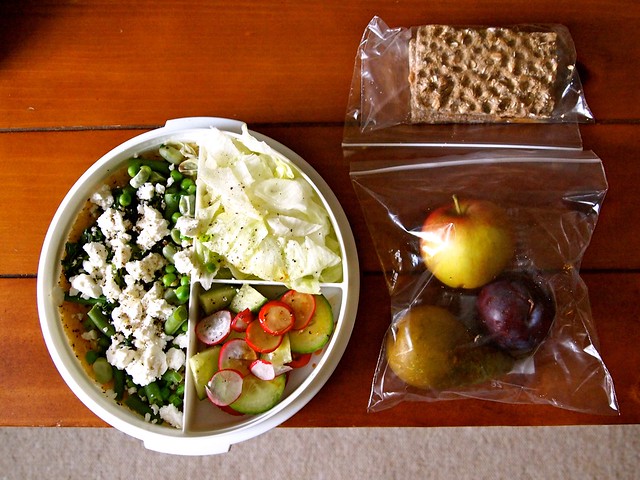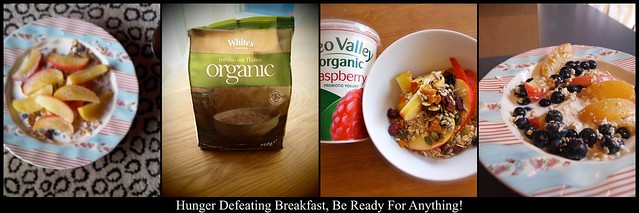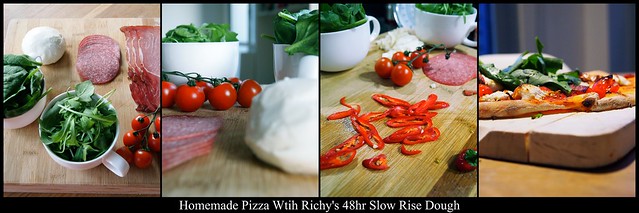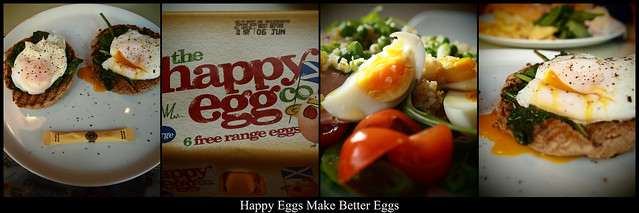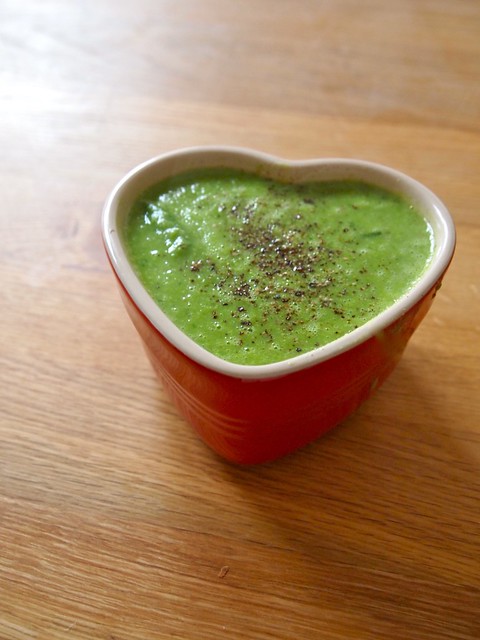 |
| http://carenalpertfineart.com/gallery.html#18 The art is in the details |
Hippocrates Said In Ad 390 — “Let Food Be Your Medicine, And Medicine Be Your Food”
Wednesday 2 November 2011
Care to Critique
These videos clearly remind us of how the use of our noggins is essential when allowing "fact" to determine our opinion!
Wednesday 31 August 2011
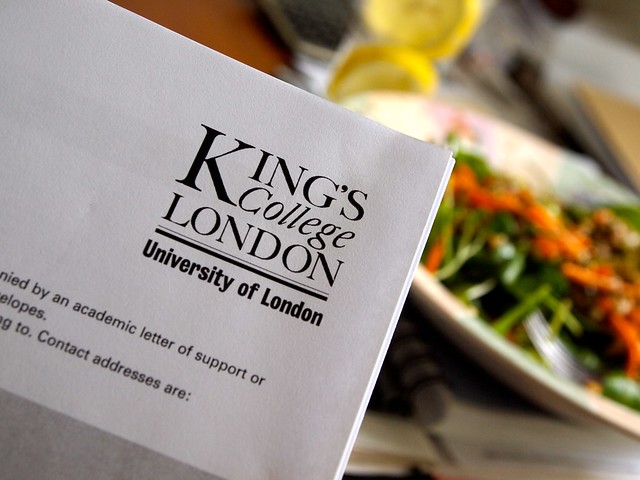
Personal Statement
Lola Tait Biggs
Hippocrates said in AD 390 —
“Let food be your medicine, and medicine be your food”.
A philosophy that still rings true.
My life changed in September 2009; I left London, arrived in Glasgow and began my degree in dietetics at GCU. My mind was filled with anticipation and excitement for my big step back into academia.
First year involved a continuous flow of new ideas and knowledge with strong reiteration of past studies. New areas of study excited and challenged me, those such as sociology and psychology. An emphasis on reflection skills and the readiness to become a more rounded individual in society only heightened my respect for the programme; this was a new type of learning, which I had not previously experienced. The concoction of modules in level one gave me the right balance between practical application of knowledge, and theoretical exploration. I valued revisiting and strengthening my understanding of human physiology, and relating the in-depth cellular processes involved within human nutrition. Level one also gave rise to the opportunity to be class representative, where I gained insight into my fellow students’ experiences, opinions and challenges they faced. I was able to attend meetings at the Student Association, furthering my experience of university life. Furthermore, level one included the module ‘Foundations for practise in health and social care’; this gave me the opportunity to explore the dynamics of multidisciplinary teams. Within this module I worked within a team of mixed allied health professional students, and had the opportunity to present solely in debate environments. At this point I realised my love for presenting ideas and delivering presentations on current affairs and journals.
Level two arrived and I was ready to continue challenging myself. Summer had allowed me to reflect on my marks achieved, and continuing my Blog (http://lolalivestoeat.blogspot.com) throughout the summer months enhanced my knowledge and kept dietetics on the forefront.
The content of level two was underpinned by the anticipated first clinical placement; throughout the year I was able to meet practising dietitians and guest lecturers from different clinical areas. This was part of the on campus placement, where allocated time was used to build up my portfolio ready for the summer placement. I increased my understanding that dietetics was now more than just about nutrition, it was a profession, a career that I could see myself developing.
Level two involved applying and enriching knowledge obtained from level one, which highlighted the nature of the career, knowledge is always to be built upon. Challenges were faced head on and I continued to broaden my insight by reading and analysing present and past journals with a stronger critique than before.
By the end of my second year, I had a worthy appreciation of the specialist streams, broadened by the breadth of experience gained from my clinical placement. This was placed in Aberdeen, where I experienced a Dietitian’s role in a psychiatric hospital as well as the diverse role within the community caring for those with learning disabilities. I realize I was incredibly fortunate to be able to have such broad polarized experiences in relation to the possible routes my career could take.
Throughout my growing experience in Glasgow, my love for London shone through; my experience in Glasgow was strengthened by the life skills I had learnt in London. I have grown so much in Glasgow and met an array of fantastic people whose lessons have been invaluable. I have gained strong vital insight into a different society and, with that, an understanding of the inevitable sociological factors involved in dietetic care. This is something I feel I can bring with me to London, and transfer into my future studies and career.
London is where I want to reside after graduating, however the opportunity to finish my degree in the hub of the center of London is something I would prize completely. The King’s College London’s excellent reputation for research and teaching facilities across all campuses with the added unrivalled bonus experience of London life, with its location and history is something I would be fortunate to experience. My prior experience of London has given me the life skills and street sense needed for the practicalities of studying within such an influential city. With the grounded fundamental knowledge and experience obtained from GCU, I feel that finishing my degree in Dietetics at King’s would give me the best start to my lifelong career.
When looking on the King’s College London website I came across the following article in the news feed: “Eating disorders and fertility research”. Reading this, I was able to reflect on an experience I’d had sitting in on a dietetic consultation with an outpatient within the eating disorders clinic.
The lady had opened up to me about her feelings towards her dietetic care. She sat with her baby on her lap and spoke about her experiences. She further described the challenges psychologically and financially she had faced when undergoing IVF treatments, and how she wished she had pursued the help from a dietitian prior. She described how invaluable her consultations were and how thankful she was to continue on the road to recovery and be able to bring her son up with a healthy eating attitude.
‘The next best thing to knowing something is knowing where to find it.”
Samuel Johnson (1709-1784) British author
And I know I will find this at King’s College London.
Monday 15 August 2011

I Enjoy having my friend Chanelle round for “tee” aka dinner, firstly because of the obvious; she is my friend and therefore fantastic and secondly whatever I make for this lady, gratitude is always ever abundant!
So when a thrown together Mediterranean-style salad, providing an admirable source of health-promoting vitamins K, C, A, and manganese was offered along side the bulgur which not needing to be cooked, just softened, because it has already been steamed, dried, and cracked. Meant dinner prep was quick and gives Chanelle and I the chance to do what we do best…giggle the night away!
To suppose it is important to share speedy, tasty, healthy and altogether wholesome food with dinner guests is not new. As it means alongside the extended enjoyment of each other’s company, looking after a friend for life’s health is as a rule important too!
Thursday 4 August 2011
Polarised Food For Thought
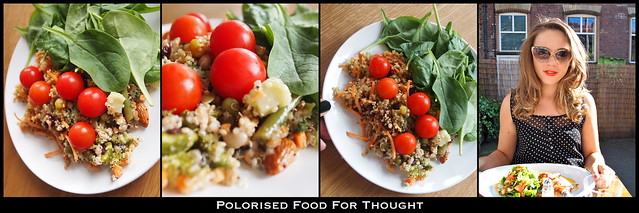
Food choices for me involve two things, one level of hunger and two in the words of Simon Cowel likeability! Thats why when I send a photo or description of what I am about to eat to Richy I find it bizzare to see how polorised our opinions are about the same dish…..
To me it is interesting, wholesome and tasty to him "hmmm leaves, tomato and lumps if grain…my fav" filled with the inevitable sarcasm.
This made me question my original "choice", were there unknown factors other then the above involved when I put together my lunch. It appears that to many this concoction denotes health, diet, light, green, and altogether a lower class option on the taste front, resembling something more along the line of a rabbits cuisine then a tasty bate!
But to me time after time The food "choices" I make follow through to be tasty, yummy and altogether satisfying!
This has highlighted the battles I may face in my career, one persons food heaven is close to another's food hell
Thursday 23 June 2011
Wonderfully Wimbledon and Scrumptiously Seasonal

Although they have become increasingly available year-round, they are at the peak of their season from April through July when they are the most delicious and most abundant.
However, be fussy with your stawbs! Because strawberries, once picked, do not ripen further, so what you see is what you get.
If you see dull with green and yellow patches then your body will enjoy them just as much as you do, however if they are deep in colour and are full ripened then this relates directly to nutrient quality and to with it your enjoyment.
Both underripe and overripe strawberries have been show to have lower vitamin C content and decreased phytonutrient content in comparison to optimally ripe strawberries.
But it is not just the vitamin c we should thank the strawberry for, it delivers a bounty of nutrients and remains an excellent source of manganese, the essential trace mineral which acts as the jack of all trades when it comes to keeping your body ticking smoothly.
In general, the myriad of nutrients found within the fruit is always best eaten in the fruit; there is something about the way it is delivered to your body that is impossible to replace through supplements alone!
Enjoy strawberries and your body will thank you for it, adding a little meringue and Greek yoghurt is an instant indulgence that should be enjoyed throughout the summer!
Sunday 12 June 2011

Matcha green tea is a powdered tea, where you ingest the whole tealeaf instead of simply the infusion, this brings along with it many benefits and unique nutrition characteristics such as the beta-carotene equivalent to a bowl of spinach!
Although green tea is a rich source of bioactive compounds (polyphenols and methyxanthines) the extraction efficiency of these compounds strongly depends on the extraction conditions.
The first extract (brewing) of green teas is often discarded due to excessive astringency, but what happens when we reuse the tea bag... well…
It is concluded that the practice of reusing tea samples is not a good way of drinking since most of health enhancing compounds (flavonoids) decompose (Astill, Birch, Dacombe, Humphrey, & Martin, 2001).
Research shows that the stability of bioactive compounds within green teas really does vary according to its preparation and storage.
Findings from investigations suggest that maximum extraction (getting the good bits out) efficiency of bioactive compounds (the good stuff) from green tea is achieved by brewing at 80 °C, for 5′ (powder), 15′ (bagged) and 30′ (loose leaf).
However, lets face it we don’t make a cup of tea to enjoy 30 mins later! So leave it for five and hope for the best I say! Also any longer then that and I always suffer the typical green tea bitterness, where you sip it thinking...
“oh this is why it is good for you, it tastes awful’
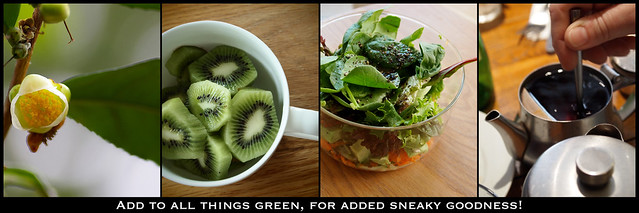
Enjoy your green tea often throughout the day, and if you’re decadent, enough to get the Matcha stuff… mix it into smoothies(add kiwis for extra green goodness and flavour!), soups or within your dressing for your salad!
Wednesday 8 June 2011
Hunger Defeated, Be Ready For Anything!
Wednesday 27 April 2011
Sunday 24 April 2011
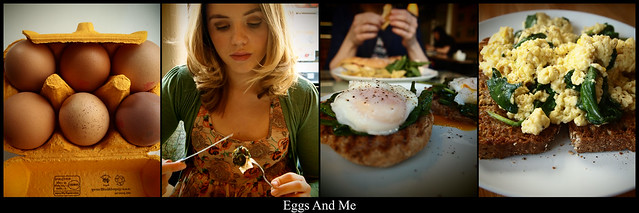
An egg is one of the most nutritious food items in our diet. It is rich in minerals, proteins, and vitamins, all of which are easily absorbed by the body.
It is one of the only dietary sources of vitamin D, and great source of Choline that helps keep our nervous system running smoothly!
According to one study, an egg a day may prevent macular degeneration due to the carotenoid content, specifically lutein and zeaxanthin. Both nutrients have increased bioavailability (improved usability) to our bodies from eggs than from other sources.
My Mum always said it was unhealthy to have eggs everyday, although I think this was a mixture of 80’s mindset and her strong sense of smell.
Recent studies have shown that regular consumption of two eggs per day does not affect a person's lipid profile (The lipid profile is a group of tests that are often requested together to determine risk of coronary heart disease) and may, in fact, improve it.
Research suggests that it is saturated fat that raises cholesterol rather than dietary cholesterol, and with eggs having only 5g of total fat with just 1.5g of that being saturated we can say that there is a lot worse out there!
Before I end this post I must mention the quality of protein eggs have! They give us all 9 essential amino acids,
Before I end this post I must mention the quality of protein eggs have! They give us all 9 essential amino acids,
Eggs promote healthy hair and nails because of their high sulphur content and wide array of vitamins and minerals. Many people find their hair growing faster after adding eggs to their diet, especially if they were previously deficient in foods containing sulphur or B12.
When buying eggs make sure there are from happy hens! They taste better and lets face it we have all seen the terrible conditions for those barn eggs and if we stop buying them there will not be the demand and profits to be made, so always happy eggs please!
Friday 22 April 2011
The Man And His Dinner
The man wants something filling, flavour rich and shovel-able! The result,

One pepper, a red chilli, the leftover mushrooms, few sprigs of parsley and manly red onion most definitely not sliced finely. All bound together with a rather large portion of fancy rice.
The sum of these was all thrown together in a large skillet and tossed around in the most flamboyant (chef like) of ways.
There was not a broccoli floret in sight, but instead a content eating machine ready for a game of footy.
What a man!

One pepper, a red chilli, the leftover mushrooms, few sprigs of parsley and manly red onion most definitely not sliced finely. All bound together with a rather large portion of fancy rice.
The sum of these was all thrown together in a large skillet and tossed around in the most flamboyant (chef like) of ways.
There was not a broccoli floret in sight, but instead a content eating machine ready for a game of footy.
What a man!
Monday 14 February 2011
Saturday 5 February 2011
Apple A Day, Keeps The Dr Away!

They are robust for your handbag, unlike a banana, can be eaten with one free hand and incredibly versatile.
The apples of the moment in my life are of the jazz variety.
‘You can always trust a Jazz apple to be crispy and juicy!’
The Jazz variety first occupied my fruit bowl about year and half ago. Whilst shopping in Waitrose I spotted them, how could I pass them with a name like that, although I must say I did fall into the trap of picking them up in a very characteristic jazz hand manner!

Personal Statement
Lola Tait Biggs
Hippocrates said in AD 390 —
“let food be your medicine, and medicine be your food”.
To me the above statement makes perfect sense, yet in today’s modern society of
Technological advancement and drug-dependency, we seem to have long forgotten this simple philosophy. This became apparent whilst studying Biochemistry and Human Nutrition at A-Level, and it is now clear to me that these are areas of expertise I need to pursue further, through higher education and a career in dietetics. I have always had a hunger for scientific knowledge, and I feel my A-Level studies gave me a strong fundamental understanding of Biochemistry and Human Digestion and an insight into their relationship, which is vital for a career in dietetics. I also studied Science for Public Understanding, which explored the public’s relationship with food and the role that the media plays in food and health promotion. In my coursework assignment for SPU I chose to undertake the subject: “The Media, is it Responsible for Eating Disorders?”, and for this I received an A-grade. Within a learning environment I have always shown great enthusiasm and communication skills, whether absorbing the knowledge of a lecturer or participating in discussions, and I am especially fond of the chance to vocalize my thoughts on a subject.
Edison said —
“The doctor of the future will give no medicine but will interest patients in the
care of the human frame, diet, and the cause and prevention of disease.”
Through undertaking a module in “Human Health and Disease” I realized just what an important role preventive measures are in tackling major diseases in the UK. Heart disease is the UK’s biggest killer, draining the economy of millions of pounds each year in transplant and treatment costs. Yet comparative costs of proactive, preventative measures such as consultation and lifestyle advice is fractional. This methodology also has the advantage of encouraging long-term benefits to the patient, and even promotes the concept of healthy eating to family and friends through the patient.
Lab practice in Biology and Chemistry allowed me an insight into the physical experiments used in the food industry to determine the presence and quantity of certain macronutrients. I also choose Mammalian Physiology as an option of Biology A-Level, learning the mechanics of human digestion and homeostasis, which should prove invaluable in the first year’s modules of the Human Nutrition & Dietetics course.
The destructive and beneficial capabilities of food fascinate me, and my enthusiasm and passion for the subject allows me to demonstrate effort and commitment in undertaking my own research and adhering to deadlines. I work well with others, as I do managing my own projects, something I have learnt from managing a team in London. From a young age I have demonstrated a willingness to care for others and involve myself in teamwork, attending St John’s ambulance cadets for a period of four years. I hope that my interpersonal and communicational skills, matched with my passion and enthusiasm for the subject means I have the personality to succeed in a career in dietetics.
Being brought up by a mother who trained as a chef before becoming a mental health charge nurse has educated me with the importance of balancing good food with good health. It also led to the opportunity of speaking to a practicing dietician at Newcastle General Hospital’s Young Person’s Unit. This proved to be a valuable insight into the career; the challenges I will face and the rewards I can achieve, and only further reinforced my desire to pursue dietetics as a line of work.
I am attracted to the opportunity of working with individuals, with each new Patient offering a new, unique challenge to overcome. I appreciate that effective treatment in the field of dietetics does not always have to come from a textbook, but the dietician is required to take an integrative approach, adapting their advice to the specific requirements of the patient.
Spending two years working in London prior to returning to education has allowed me to succeed in sales, becoming a counter manager in a prestigious skin care company within a year of leaving college. I believe this opportunity arose due to my determination and commitment to whatever challenge I am presented with, and this experience has helped to further develop my excellent people skills.
Over the past two years I have strived to continue learning by frequently reading texts on Human Nutrition, as well as online articles written by the BDA and Nutrition Data websites. This has further fuelled my desire to study Dietetics at university and I hope the effort I have gone to will put me in good stead to be a successful student. In Patrick Holford’s “The Optimum Nutrition Bible”, he quotes Dr Linus Pauling
“optimum nutrition is the medicine of tomorrow”.
The concept of promoting health and wellbeing through optimum nutrition greatly excites me and I feel is beginning to give rise to a movement in the world of healthcare that I would very much like to be part of. I hope that you will consider me for enrolment onto the Human Nutrition and Dietetics course and agree that through undertaking this course I will be able to achieve my goals in a career in Dietetics.
Subscribe to:
Posts (Atom)
